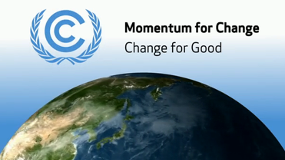Ambassador Carmen G. Cantor speaks on FSM’s efforts against Human Trafficking
- Details
- Category: News
- Published: Monday, 30 November -0001 00:00
- Written by Bill Jaynes
- Hits: 257
Ambassador Carmen G. Cantor speaks on FSM’s efforts against Human Trafficking
This is a historic year for the U.S. Government and the U.S. Department of State as we celebrate the 20th anniversary of the Trafficking in Persons Report (TIP Report).
When the United States Congress passed the Trafficking Victims Protection Act (TVPA) in 2000, one of its requirements was the creation of a report that would represent the U.S. government’s dedication to fight human trafficking on a global scale and serve to increase
the number of governments actively prosecuting traffickers, protecting victims, and preventing human trafficking crimes.
From its inception, at a time when many governments denied the existence of human trafficking in all its forms, the TIP Report has become the standard-bearer for the principles enshrined in the TVPA and the 2000 UN Trafficking in Persons Protocol. Over the last 20 years, the TIP Report has successfully reinforced global anti-trafficking norms and ideals. It has drawn attention to trends and emerging issues, highlighted promising practices, and tracked the progression of important developments, such as the passage of comprehensive anti-trafficking laws and improvements in victim identification efforts.
On June 25, U.S. Secretary of State Michael R. Pompeo released the 2020 TIP Report. The Report documents the government efforts of 188 countries and territories, including the United States, to combat human trafficking. Though the methodology, content, and design of the TIP Report have evolved, reflecting the broader anti-trafficking movement’s progress in understanding the crime, the messages at the heart of each edition have been steadfast: there is no excuse for human trafficking, and governments must take bold action to end it.
The need for a global response has never been greater as the COVID-19 pandemic reinforces the urgency to protect vulnerable people from exploitation by traffickers.
The Government of the Federated States of Micronesia (FSM) is making significant efforts to fully meet the minimum standards for the elimination of trafficking. The government continues to demonstrate overall increasing efforts to include funding an anti-trafficking training for law enforcement officials and providing $120,000 for trafficking victim services. The government
also established an Anti-Human Trafficking Division within the Department of Justice, with a full-time assistant attorney general to prosecute human trafficking cases and investigators in the states of Chuuk and Kosrae. Furthermore, the FSM Department of Justice continues to collaborate with the respective FSM States in their efforts to identify, address, and prosecute human trafficking cases. The FSM Department of Justice continues to provide training for law enforcement officials, judges, lawyers, health providers, faith-based organizations, and youth and women’s groups, at the state and national level. However, there is more work that needs to continue taking place to implement national and state-level action plans, and meet minimum standards for the elimination of trafficking.
Over the last two decades, the U.S. Government, through the U.S. Department of State, along with host governments, including the FSM, NGOs, multilateral organizations, survivors, faith communities, and other advocates have been unrelenting in the pursuit of a world free from human trafficking. We acknowledge our achievements and steel ourselves for the battle ahead and the work yet to be done.
Thank you,
Carmen G. Cantor
United States Ambassador to the Federated States of Micronesia






